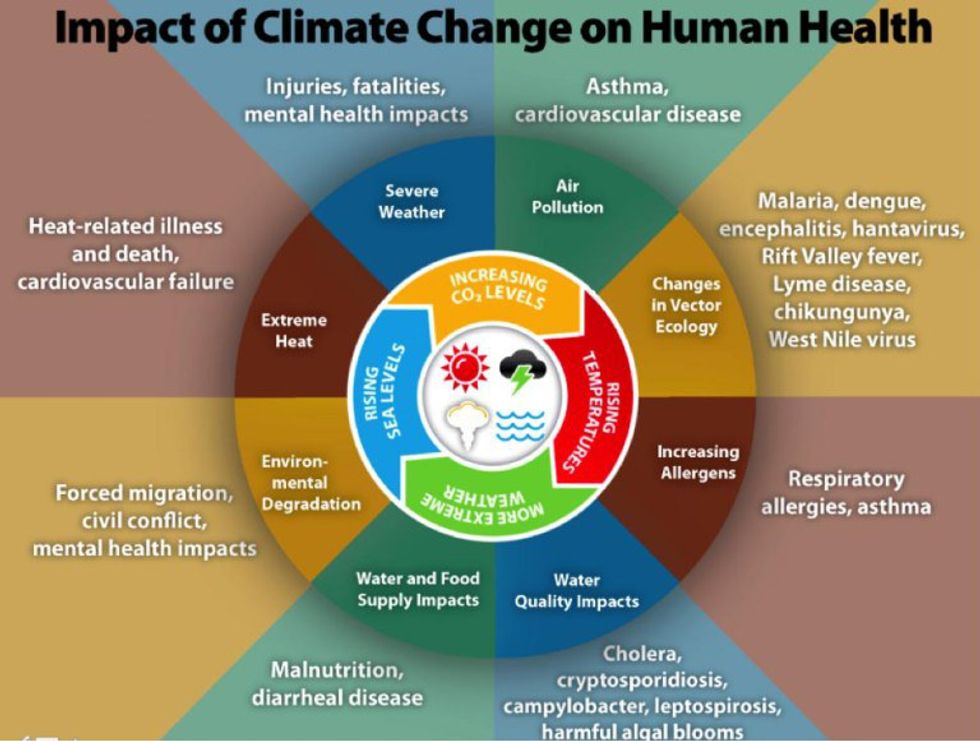Despite what some people say, climate change is not a hoax; It is very real, and very scary.
Over the past century, Earth's average temperature has risen by 1.5 degrees Fahrenheit. This may seem like a small number to most, but small changes in the temperature of our planet can cause threatening changes in the environment.
Climate change is happening right in front of us, with excessive droughts, severe heat, severe cold, flooding, and more natural disasters.
Humans are responsible.
We have increased the amount of carbon dioxide in our atmosphere, along with other greenhouse gasses. It comes from burning fuel to produce energy, wildfires, deforestation, industrial processes, and more.
Although the greenhouse effect is necessary for life on Earth, excessive amounts of gasses becomes hazardous to our climate, then, in turn, us.
The NRDC records the consequences of global warming, such as dramatic water shortages, increase in wildfires, rising sea levels, heat waves, increased flooding, extinction of plants and animals, and infectious disease outbreaks.
The Portland Business Journal also lists the effects climate change can have on human health, such as an increase in vector-borne diseases, water-borne diseases, asthma, deaths from heat waves and natural disasters, mental health crisis, and food insecurity.
A diagram from Gardens for Health demonstrate the effects a bit more clearly:
There is a solution; We can slow down, even stop the process of global warming.
The NRDC lists everything you can do to reduce your carbon footprint, such as powering your home with renewable energy, weatherizing your home properly, investing in energy-efficient appliances, driving a fuel-efficient vehicle, using LED bulbs, wasting less food, and more.
You can even invest in an evironmentally-friendly home.
One of the most Earth-loving homes out there is called the Earthship, which is characterized by using thermal/solar heating and cooling, solar and wind electricity, contained sewage treatment, built with recycled and natural materials, water harvesting, and food producing.
Reducing your carbon footprint can be done doing small things, like changing lightbulbs, to doing big things, like providing energy for your home via solar power. It takes a small change to make a difference, and it all starts with you.





















 sunrise
StableDiffusion
sunrise
StableDiffusion
 bonfire friends
StableDiffusion
bonfire friends
StableDiffusion
 sadness
StableDiffusion
sadness
StableDiffusion

 purple skies
StableDiffusion
purple skies
StableDiffusion

 true love
StableDiffusion
true love
StableDiffusion
 My Cheerleader
StableDiffusion
My Cheerleader
StableDiffusion
 womans transformation to happiness and love
StableDiffusion
womans transformation to happiness and love
StableDiffusion
 future life together of adventures
StableDiffusion
future life together of adventures
StableDiffusion





















